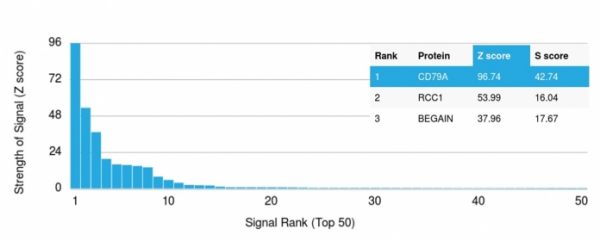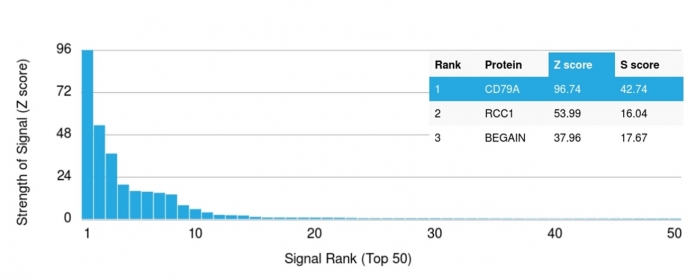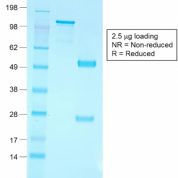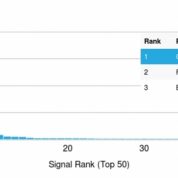Human Anti-CD79a (B-Cell Marker) Antibody Product Attributes
Species: Human
Tested Applications: IHC.
Clonality: Monoclonal
Anti-CD79a (B-Cell Marker) Antibody Clone: rIGA/764
Clone rIGA/764 Host and Isotype: Mouse IgG1, kappa
Anti-Human CD79a (B-Cell Marker) Positive Control Sample: Daudi or Ramos cells. Germinal center B-cells in a lymph node or tonsil.
Cellular Localization of Antibody rIGA/764 Staining: Cell surface
Buffer and Stabilizer: 10mM PBS with 0.05% BSA & 0.05% azide. Also available without BSA & Azide.
Antibody Concentration: 200 ug/ml
Antibody Purification Method:Protein A/G purified from Bioreactor concentrate.
Immunogen: Recombinant full-length human CD79A protein
Storage Conditions: Store at 2 to 8 C (refrigerate). Stable for 24 months when properly stored.
CD79a (B-Cell Marker) Previously Observed Antibody Staining Patterns
Observed Antibody Staining Data By Tissue Type:
Variations in CD79a antibody staining intensity in immunohistochemistry on tissue sections are present across different anatomical locations. An intense signal was observed in cells in the white pulp in spleen, germinal center cells in the lymph node, lymphoid tissue in appendix and non-germinal center cells in the tonsil. More moderate antibody staining intensity was present in cells in the white pulp in spleen, germinal center cells in the lymph node, lymphoid tissue in appendix and non-germinal center cells in the tonsil. Low, but measureable presence of CD79a could be seen inmacrophages in lung. We were unable to detect CD79a in other tissues. Disease states, inflammation, and other physiological changes can have a substantial impact on antibody staining patterns. These measurements were all taken in tissues deemed normal or from patients without known disease.Limitations and Warranty
enQuire Bio's product, CD79a (B-Cell Marker) MonoSpecific Antibody, is available for Research Use Only (RUO-Only). This antibody is guaranteed to work for a period of two years when properly stored.







There are no reviews yet.